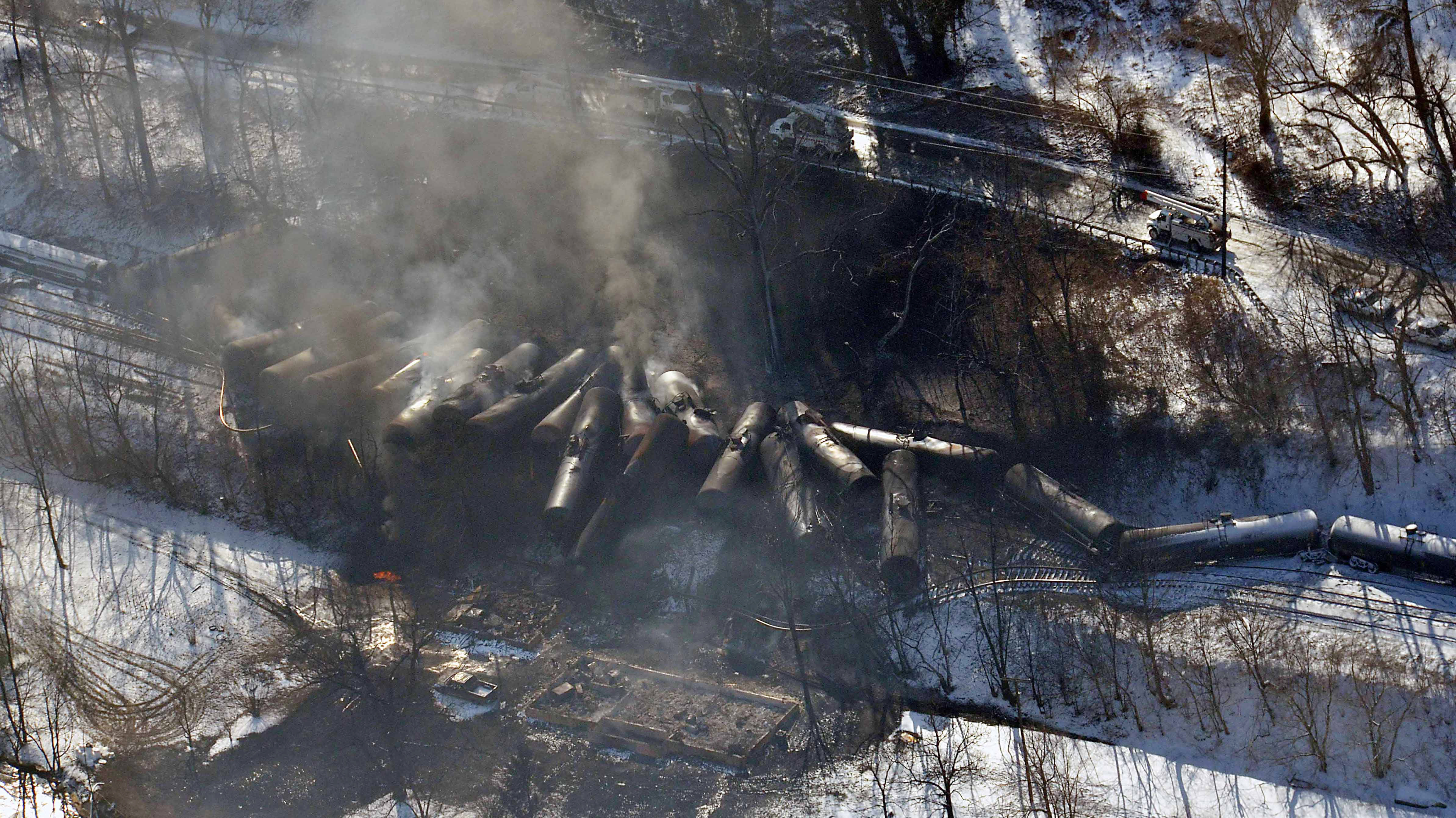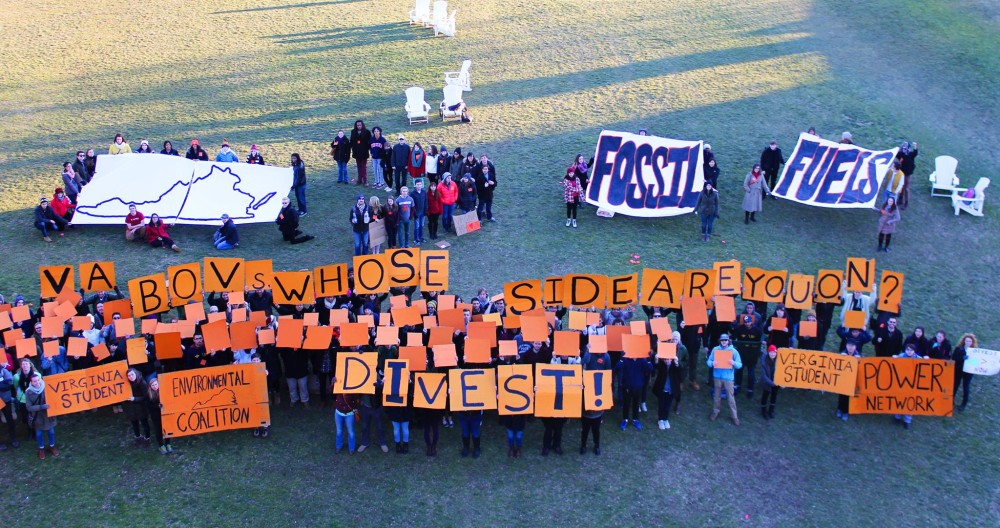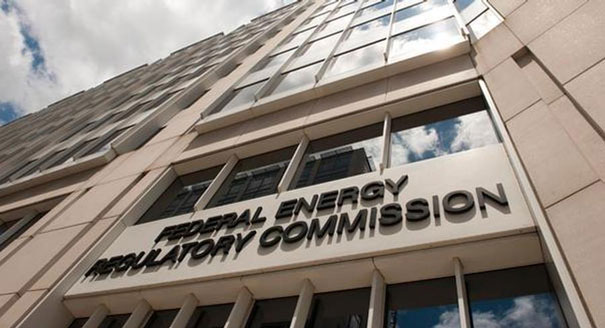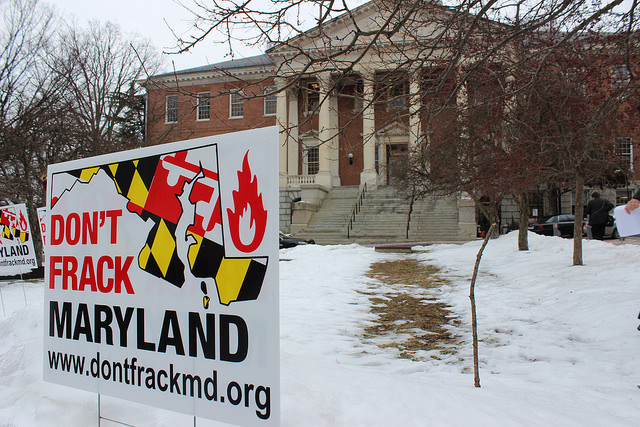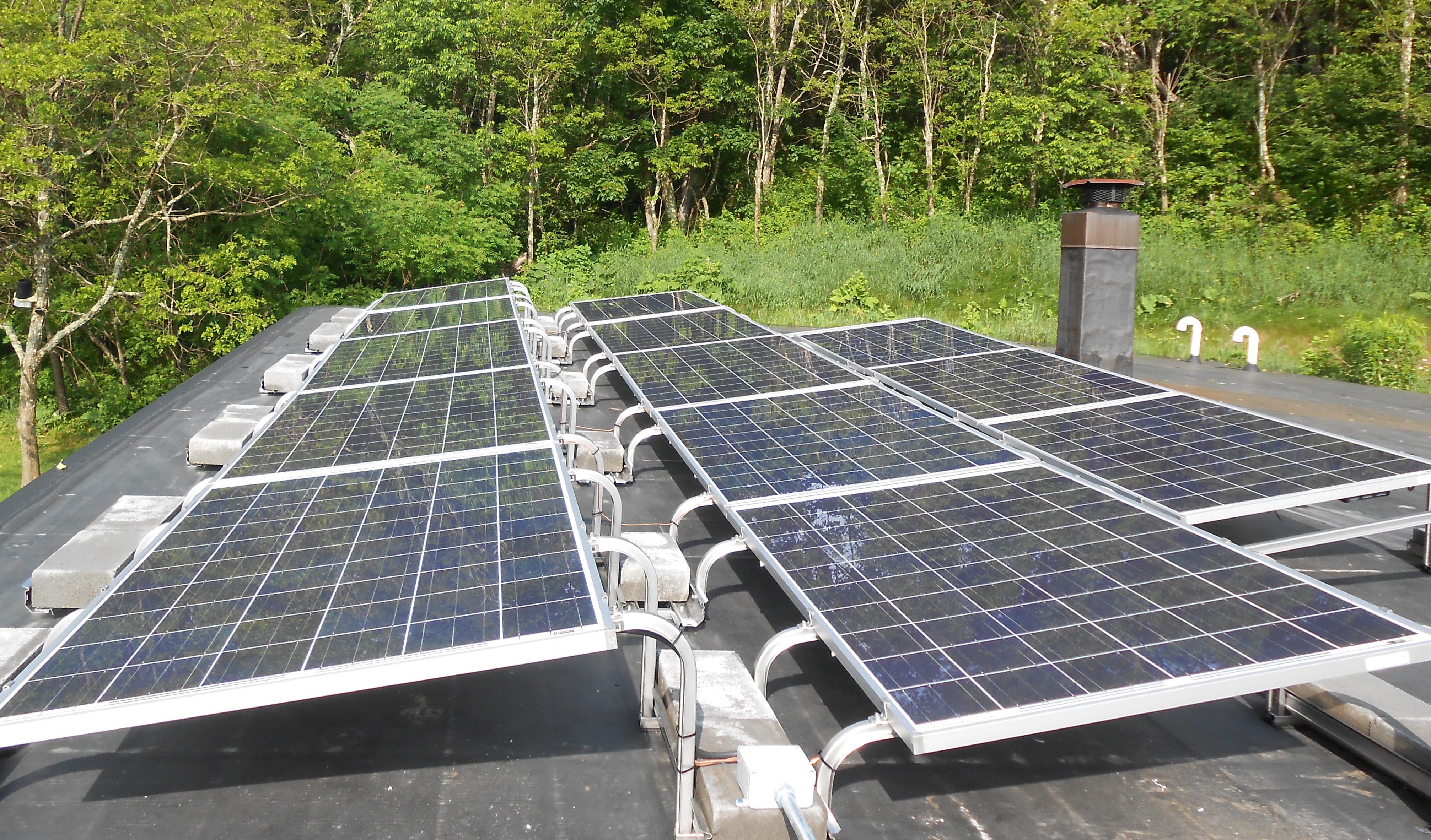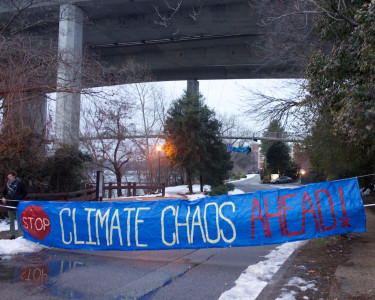On Tuesday, CCAN and our allies made it clear to Governor Terry McAuliffe that he can’t be a leader on climate while supporting Dominion’s multibillion dollar investment in the new Atlantic Coast Pipeline.
 In October, just a month after the the $5-billion, 550-mile project was announced, Virginia Governor Terry McAuliffe stood shoulder-to-shoulder with Dominion CEO Tom Farrell at a press conference to show us all his unequivocal support. CCAN spoke out in opposition, immediately urging the governor to withdraw his support.
In October, just a month after the the $5-billion, 550-mile project was announced, Virginia Governor Terry McAuliffe stood shoulder-to-shoulder with Dominion CEO Tom Farrell at a press conference to show us all his unequivocal support. CCAN spoke out in opposition, immediately urging the governor to withdraw his support.
More recently, Governor McAuliffe has dismissed or downplayed the project’s serious threats to public safety, to private property rights, and to natural resources that sustain local economies.
On Tuesday, CCAN and our allies responded. delivering over 5,000 petitions to the Governor’s Richmond office demanding that he rescind his support for Dominion’s dirty and dangerous project.
What’s next?The Federal Energy Regulatory Committee (FERC) is accepting public comments on the scope of it’s upcoming Environmental Impact Statement on Dominion’s proposed pipeline project. The deadline for submitting comments is April 28th. Submit your comment here.
In supporting the Atlantic Coast Pipeline, Governor McAuliffe failed to mention the scientific data showing that methane, which leaks from fracking wells and pipelines, is as much as 87 times more powerful than carbon dioxide in heating the atmosphere over a 20-year period. Nor did he acknowledge the fact that this proposed pipeline would inevitably drive demand for new “fracking” in our region.
pipelines, is as much as 87 times more powerful than carbon dioxide in heating the atmosphere over a 20-year period. Nor did he acknowledge the fact that this proposed pipeline would inevitably drive demand for new “fracking” in our region.
On Tuesday, CCAN, along with allies living along the proposed route of the pipeline, told Governor McAuliffe: No New Pipelines! We showed up in front of the Governor’s downtown Richmond office with boxes of petitions and a 40-foot inflatable pipeline. We invited reporters to listen to moving statements from Nancy Sorrells of the Augusta County Alliance, Joanna Salidis of Friends of Nelson County, and Heather Nolen of Friends of Buckingham County and others.
Read what the media said about our event:
- http://www.nbc29.com/story/28740768/proposed-natural-gas-pipeline-opponents-protest-in-richmond
- http://www.newsleader.com/story/news/local/2015/04/07/opponents-atlantic-coast-pipeline-press-mcauliffe/25402119/
 After the press conference, we met with the Governor’s Deputy Secretary of Natural Resources, Evan Feinman. In the hour and a half long conversation, CCAN and our allies pressed that the Governor withdraw his support. Joanna didn’t mince words: “I really believe that the Governor is failing people living along the route.”
After the press conference, we met with the Governor’s Deputy Secretary of Natural Resources, Evan Feinman. In the hour and a half long conversation, CCAN and our allies pressed that the Governor withdraw his support. Joanna didn’t mince words: “I really believe that the Governor is failing people living along the route.”
For now, Governor McAuliffe remains committed to seeing Dominion’s pipeline get built. We need your help to keep the pressure on him. And we need your help keeping the pressure on FERC. Tell FERC that this project isn’t right for Virginia’s climate future. Submit a comment to FERC today. The deadline is April 28th. Submit your comment here.
Thank you for your continued support.

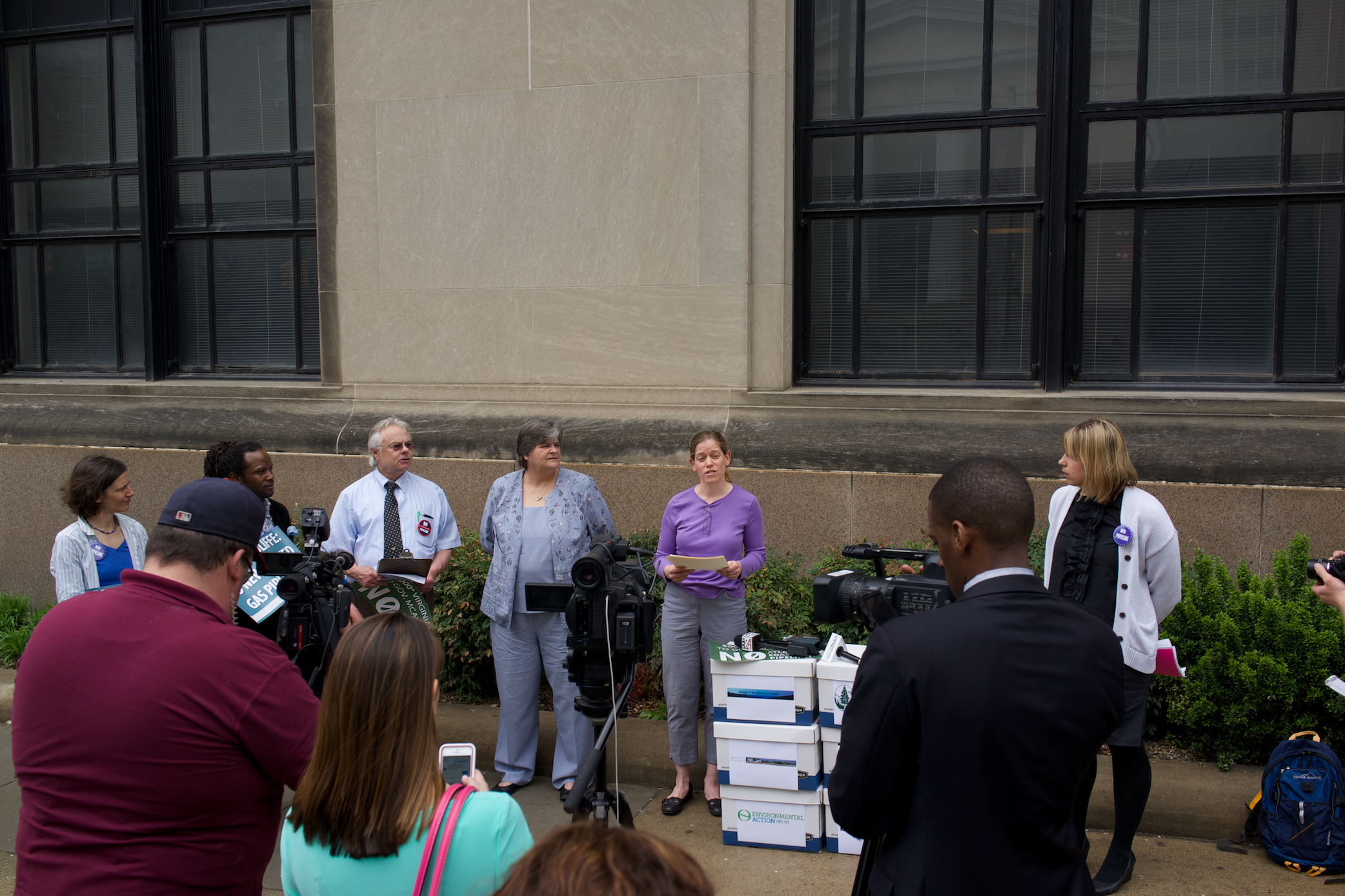
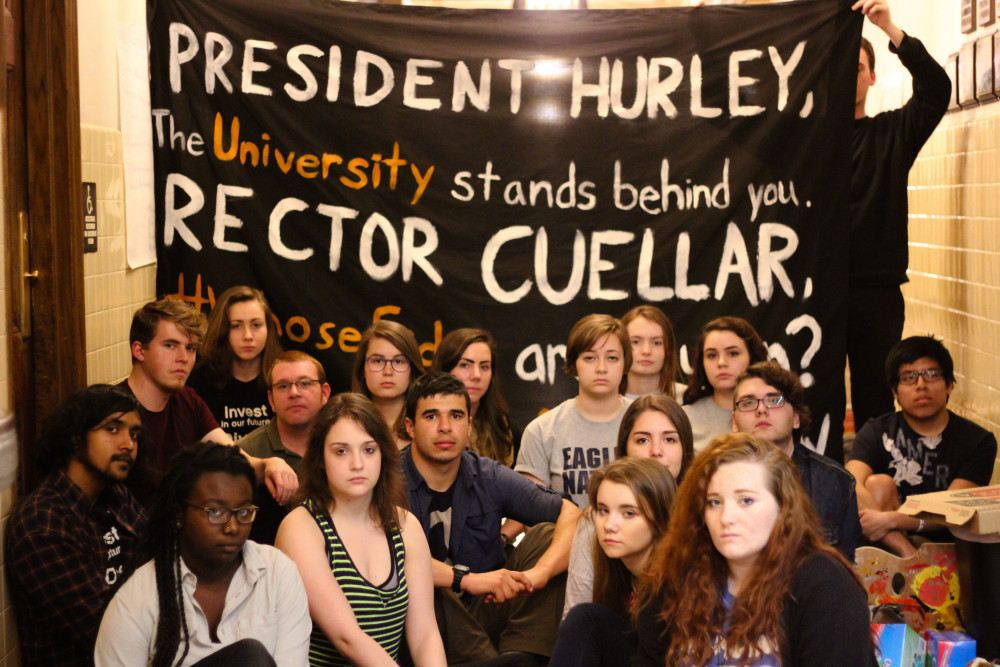
 Hour 320. That is how long students at the University of Mary Washington have sat in their President’s office for serious action on Divestment. It is day 14 of their sit-in and the Rector of their Board of Visitors, Holly Cuellar, has still not spoken with her students.
Hour 320. That is how long students at the University of Mary Washington have sat in their President’s office for serious action on Divestment. It is day 14 of their sit-in and the Rector of their Board of Visitors, Holly Cuellar, has still not spoken with her students.



